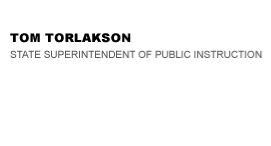AB 114 Memo


Official Letter
Official Letter
July 26, 2011
Dear County and District Superintendents, Special Education Local Plan Area Directors, Special Education Administrators at County Offices, Charter School Administrators, Principals, and Nonpublic School Directors:
Assembly Bill 114: Local Educational Agencies’ Responsibility for Providing Related Services to Students with Disabilities
The passage of AB 114 marks the end of a year filled with questions and confusion over the responsibility for providing mental health services to students with disabilities. Last year, several lawsuits were filed in an attempt to gain clarity and challenge Governor Schwarzenegger’s line-item veto of approximately $133 million for mental health services for students with disabilities when he signed the Budget Act of 2010–11. On February 25, 2011, the California Court of Appeal issued an opinion which upheld Governor Schwarzenegger’s action as constitutional. With the Court of Appeal decision and the passage of AB 114, it is clear that school districts are now solely responsible for ensuring that students with disabilities receive special education and related services, including those previously provided by county mental health agencies, in accordance with the Individuals with Disabilities Education Act (IDEA) of 2004.
With the changes to state statute outlined in AB 114, the formal relationship between local educational agencies (LEAs) and county mental health agencies for providing related services, as previously specified in Chapter 26.5 of the GC, has been eliminated. As a result, many policies, procedures, and practices which were in place prior to AB 114 may no longer be required. LEAs must rely on the IDEA for requirements regarding the provision of related services and must comply with applicable federal law and implementing regulations. This programmatic shift has resulted in many questions from LEAs and other concerned parties.
The California Department of Education (CDE) is committed to assisting LEAs in this process. As part of the Budget Act of 2011–12, the CDE was given funds to support the transition of services from county mental health agencies to LEAs in conjunction with a working group of parents, LEA staff, mental health experts, and legislative personnel. The working group will collaboratively develop technical assistance to assist LEAs in the following areas: requirements for service provision; available funding sources and parameters for using funds; procedures for identifying and assessing students with emotional or behavioral needs; and procedures for monitoring service provision and progress. The working group also hopes to identify appropriate service delivery models and best practices. The CDE will keep you informed of the working group’s progress throughout the year.
As this transition unfolds, LEAs must ensure that students continue to receive all services delineated in their Individualized Education Programs (IEPs) without interruption and in compliance with all applicable federal timelines. The provision of any related service must continue until an IEP team determines that the student no longer requires the service. The IEP must then be amended with the consent of the parent, guardian, or other holder of the student’s educational rights. To ensure continuity in service provision, many LEAs are considering an array of options to provide services that were previously provided by county mental health agencies. Some school districts may continue to contract with county mental health agencies, some may contract with organizations or professionals in the community, some may hire qualified personnel as district staff, or some may use a combination of approaches.
As LEAs consider these options and assume full responsibility for ensuring that eligible students receive required services, several questions have arisen concerning employing or contracting with mental health professionals to deliver related services. Guidance on options for LEAs to secure the services of individuals qualified to provide related services required by a student’s IEP will be forthcoming.
If you have any general questions regarding this subject, please contact the Special Education Division by phone at 916-445-4602 or by e-mail at specedinfoshare@cde.ca.gov.
Sincerely,
Original signed by Fred Balcom. Hard copy of the signed document is available by contacting the Special Education Division's Director's Office at 916-445-4602.
Fred Balcom, Director
Special Education Division
FB:sw
